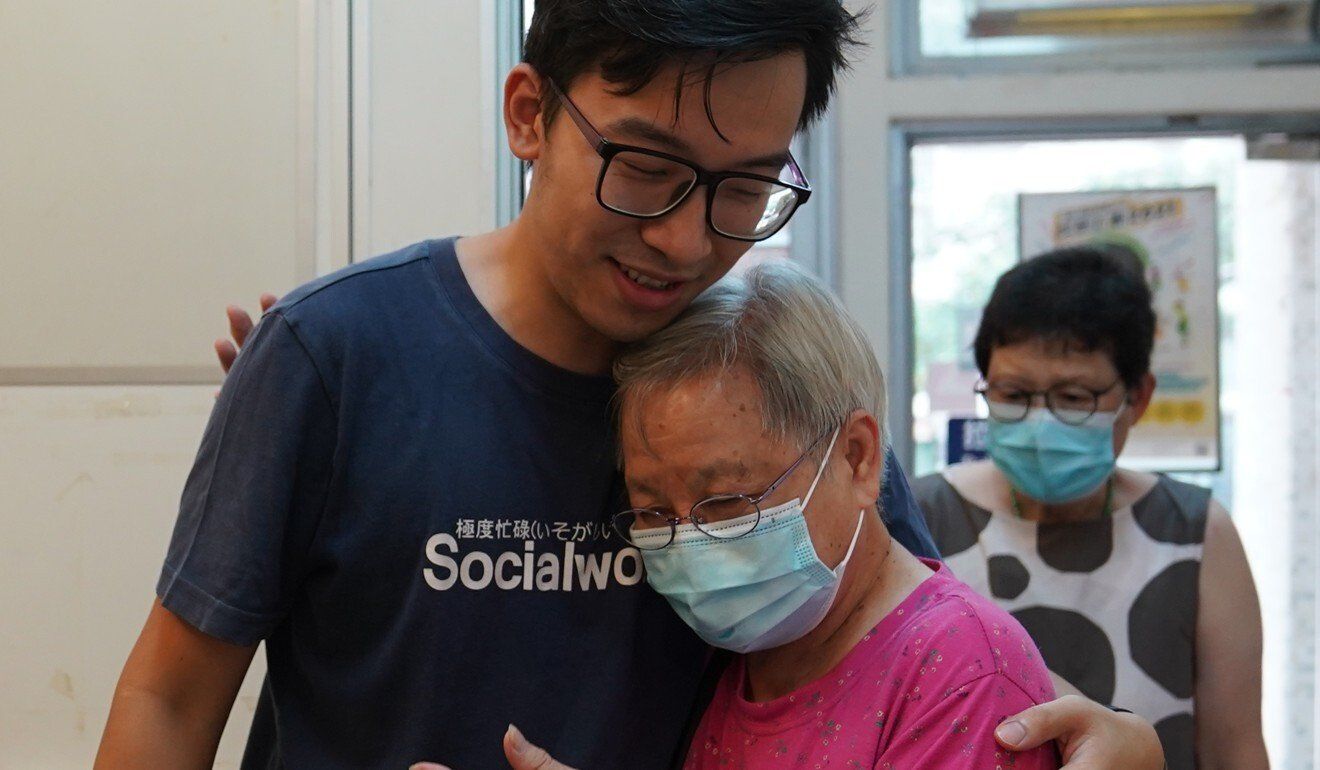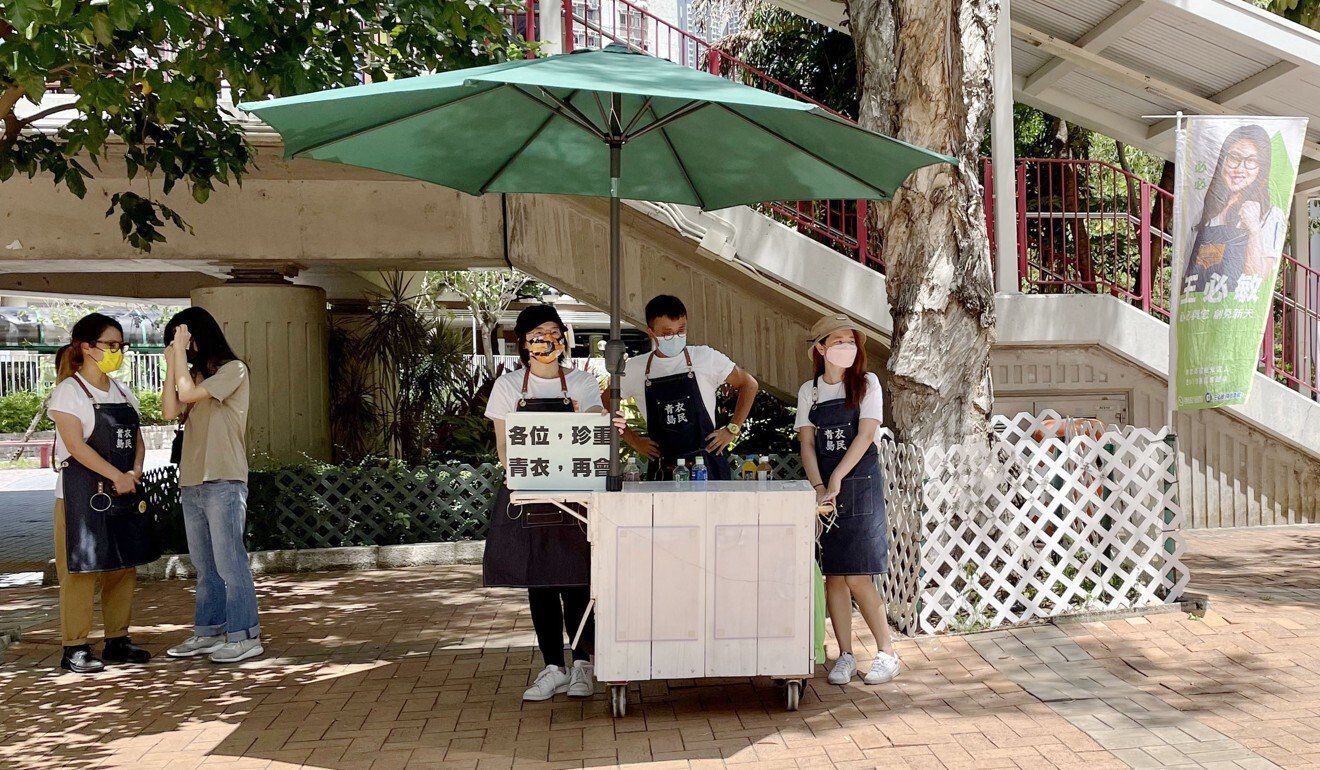Hong Kong News

Weak case for dictating Hong Kong councillors return pay, but ‘tactic worked’
A game of brinkmanship – albeit an uneven one – between Hong Kong authorities and district councillors appears to be playing out decisively in the government’s favour.
In the days since administration sources told several media outlets that disqualified district council members could be required to return every dollar of salary and operating allowances received since taking office – as much as HK$2 million (US$257,500) per person – nearly 200 opposition councillors have resigned, with many citing bankruptcy fears.
But two government sources on Monday told the Post that authorities were well aware the legal rationale for requiring disqualified councillors to return everything they were paid since the start of their terms was weak.
“But the tactic worked,” one of the sources said, suggesting the widely circulated rumours – which came in lieu of concrete action – had been enough to get the councillors to voluntarily step down.
Riding on the momentum of the anti-government protests, the opposition bloc scored an unprecedented landslide victory in the 2019 district council polls, grabbing 388 of 452 directly elected seats and taking control of 17 of the city’s 18 councils.
The latest wave of resignations has allowed the pro-establishment camp to regain the upper hand in at least three districts: Kwun Tong, Kowloon City and North.
As part of the authorities’ drive to align local legislation with the Beijing-imposed national security law, the legislature in May approved an amendment bill extending oath-taking requirements that applied to senior officials, judges and lawmakers to district councillors.
Last week, government sources said they believed nearly 150 opposition district councillors would fail to meet the revamped ordinance’s new requirements, indicating a hardline approach that would even unseat those who posted protest slogans on their office walls.
 Yeung Yuk, chairman of Sham Shui Po District Council, hugs a constituent on Monday after announcing his resignation.
Yeung Yuk, chairman of Sham Shui Po District Council, hugs a constituent on Monday after announcing his resignation.
The latest resignations took the total number of district councillors who have departed to 223 – 49.3 per cent of the total elected seats – with Central and Western district being the hardest hit. Only two pro-democracy councillors and one from the pro-business Liberal Party remained on its 15-seat council. Authorities have made it clear no by-elections will be held to fill the empty seats.
“The more opposition councillors resign without taking their oath, the fewer people the government will need to disqualify and the fewer legal challenges will emerge,” the government source said.
“That’s the best scenario some officials could hope for.”
But the two government insiders, both of whom had direct knowledge of the matter, insisted the Home Affairs Department had not abandoned the idea of moving on at least a portion of the district councillors’ money.
The primary question being asked, they said, was whether the repayment should cover the period since councillors took office in January 2020, or since this May, when the new oath-taking requirements were gazetted.
One of the two conceded seeking a return of all funds from Day 1 of their terms “lacked a strong legal basis” and that it would be more legitimate for authorities to choose the latter option.
No local laws, including the recently amended Oaths and Declaration Ordinance, stipulated liability for acts that happened before they were passed, the insider said, noting that under common law, there was a presumption against retroactivity.
The second source said that in determining the legality of repayment arrangements, one could reference the government’s disqualification last November of four opposition lawmakers deemed to have violated their duty of allegiance by Beijing.
 Kwai Tsing district councillor Wong Pit-man (in yellow mask) holds up a
sign reading ‘Take care, everyone. See you again, Tsing Yi’ as she bid
farewell to her constituents on Monday.
Kwai Tsing district councillor Wong Pit-man (in yellow mask) holds up a
sign reading ‘Take care, everyone. See you again, Tsing Yi’ as she bid
farewell to her constituents on Monday.
After several rounds of negotiations, the legislators were ultimately required to repay salaries and operation expenses for the period lasting from July 30, 2020, when they were banned from seeking re-election, to November 11, 2020, the day they were officially unseated.
“They were not asked to return the money from the first day of their four-year term,” the source said. “If the same logic applies, asking district councillors to repay all the money is legally questionable.”
More than a month since the oath-taking bill was gazetted, officials have remained vague about the criteria for disqualification under the sweeping security law as well as the repayment arrangement.
Speaking on a Monday radio programme, Chief Executive Carrie Lam Cheng Yuet-ngor said she believed some district councillors resigned because they “knew the score” after studying the “negative list” of criteria that would qualify as a breach of oath.
But Democratic Party chairman Lo Kin-hei, who resigned from Southern District Council on Sunday, called Lam’s remarks “ridiculous and unhelpful”, arguing the government had always acted on the presumption people had done something wrong.
Rosanda Mok Ka-han, who resigned as a district councillor of King Fu, a constituency in Wong Tai Sin, said even if the government’s legal grounds were weak, it would still cause huge mental stress on district councillors if they proceeded.
“If a judicial review is lodged against their decision, they’ve got nothing to lose. But for the district councillors, it may be legal procedures that could drag on for years,” she said.
Mok, who quit the post she took over from former Democratic Party chairman Wu Chi-wai, said she felt especially helpless because Wu had placed his trust in her and she did not have time to discuss the decision with him beforehand.
Wu, a former lawmaker who served as district councillor in King Fu from 1999 until giving Mok his blessing to run on his behalf in 2019, is currently in jail awaiting trial for an alleged national security law offence and two other criminal charges.
 Rosanda Mok (centre) poses with two constituents on Monday after announcing her plans to resign her district councillor post.
Rosanda Mok (centre) poses with two constituents on Monday after announcing her plans to resign her district councillor post.
Some residents were still in shock over Mok’s decision to step down on Monday, particularly senior citizens, many of whom relied on her to explain policy changes and help them apply for social security benefits.
Ho Wai-fun, 62, who lives in public housing in the area, recalled asking the district councillor for help after being overcharged on her water bill when she first moved into the neighbourhood a year ago.
She had since become a regular visitor at Mok’s office, where she enjoyed meeting other residents from the community.
“I don’t know what to do next,” she said, fighting back tears. “She’s probably the best this estate will ever have.”
Bidding farewell to residents at a street booth in Tsing Yi on Monday, Wong Pit-man, who resigned as a councillor, said that despite frustration about her own departure, she felt the change in perception by some supporters of the government in the community.
“Many self-professed ‘blue ribbons’ came to me and expressed their appreciation for my work. That’s a pretty big accomplishment in just 1½ years,” she said.











